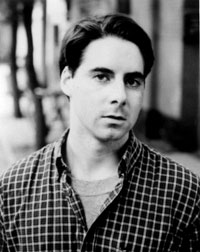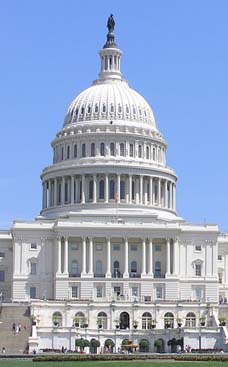2006.12.12: December 12, 2006: Headlines: Figures: COS - China: Writing - China: Tyee: Crawford Kilian reviews Peter Hessler's Oracle Bones
Peace Corps Online:
Directory:
China:
Special Report: China RPCV and Author Peter Hessler:
2006.12.12: December 12, 2006: Headlines: Figures: COS - China: Writing - China: Tyee: Crawford Kilian reviews Peter Hessler's Oracle Bones
Crawford Kilian reviews Peter Hessler's Oracle Bones

Having landed a job as the Beijing correspondent for The New Yorker, Hessler spent his time writing three or four articles a year, plus odds and ends for other magazines and papers. To a great extent he simply followed his own interests, from crooked English-language schools to the challenges of archaeology in a country with no ruins. It would have been easy to drag these stories into a single folder on his hard drive and cobble together a book. But Hessler has instead created a brilliantly unified story based on the "oracle bones" of the ancient Shang dynasty, bones carrying the first written Chinese characters. The discovery and interpretation of Shang writing occurred even as the country collapsed under warlordism, invasion and the growing communist revolution. Author Peter Hessler served as a Peace Corps Volunteer in China.
Crawford Kilian reviews Peter Hessler's Oracle Bones
Searching for China's Past
Peter Hessler rewrites the book on China.
By Crawford Kilian
December 12, 2006Ever since China began opening up in the late 1970s, a new kind of China travel book has emerged: the account by a western English teacher. These people haven't been mere tourists trying to remember which was Suzhou and which was Hangzhou. The teachers have planted themselves in particular cities, worked for Chinese employers, and come to know their students.
Having taught in China back in 1983, I've followed the genre with interest. My wife and I taught in Guangzhou, which was then like Dickens's London, only hotter. As I've read the teachers' books over the past 20 years, it's been fascinating to see what's changed and what hasn't.
The teachers have tended to focus on their own experiences as they struggle with culture, climate and politics. Sometimes they learn a little about their students' families, or about their Chinese colleagues' experiences in the Cultural Revolution. They learn much more about their own western colleagues, "foreign experts" who are also ignorant of the China they're working in.
Thompsons Highway - in stores now.
Those were very much my own responses. But an American named Peter Hessler single-handedly changed the genre to focus more on how China's people are coping with their rapidly changing society.
Hessler's 2001 book River Town was an account of his two years in a small city on the Yangtze in the 1990s. He made a point of learning Chinese, so he could get to know both his students and their community far better than most expatriate teachers ever do. Their books tend to dwell on the authors' own culture shock, and especially on China's failure to be a tidy, modern nation.
Hessler was far too intelligent for such a reaction. Whatever he learned about China, he earned by mastering the language, listening to students and people in the street, and taking the country for what it is -- not what westerners think it ought to be.
Little time for dissidents
Five years later, Hessler has published Oracle Bones: A Journey Between China's Past and Present, in which he deals with his experiences as a foreign correspondent in China from 1999 to 2003. It's yet another advance in the genre.
As a journalist, he was half-hearted -- he didn't want to develop a Rolodex of contacts or clipping files, or to interview the dissident of the week. He preferred to correspond with his former students as they launched their careers, or to hang out in seedy Beijing restaurants with transplanted Uighurs -- Turkic-speaking Muslim Chinese from the far west.
Having landed a job as the Beijing correspondent for The New Yorker, Hessler spent his time writing three or four articles a year, plus odds and ends for other magazines and papers. To a great extent he simply followed his own interests, from crooked English-language schools to the challenges of archaeology in a country with no ruins.
It would have been easy to drag these stories into a single folder on his hard drive and cobble together a book. But Hessler has instead created a brilliantly unified story based on the "oracle bones" of the ancient Shang dynasty, bones carrying the first written Chinese characters. The discovery and interpretation of Shang writing occurred even as the country collapsed under warlordism, invasion and the growing communist revolution.
Lost over centuries, lost in a generation
So some of Hessler's chapters deal with young marrieds trying to save up enough to buy an apartment, and the troubles of a Uighur émigré in post-9-11 Washington, D.C. But he weaves them into a narrative of his search for the fate of Chen Mingjia, a scholarly expert on the Shang who killed himself in 1966 during the Cultural Revolution.
Hessler's quest takes him all over China and the U.S. as he interviews scholars now in their 80s and 90s (even one still-active centenarian). Their own careers reflect the turmoil of China since the 1920s, and Hessler becomes a kind of archaeologist of their lives. He finds scraps of information as valuable to the old scholars as the oracle bones themselves.
Rather than being just a scrapbook of clippings, then, Oracle Bones gives us the mysterious history of China from two perspectives: the Shang of 4,000 years ago, the endless revolution of today. This gives us a rare insight into the price China has paid for its longevity and modern prosperity.
As little as we know about the Shang, we know almost as little about the tragedies of the 1930s and 40s, and the catastrophes of the 1960s. The survivors of the Cultural Revolution, like combat veterans, prefer not to talk about what they experienced. Hessler's ex-students scarcely understand what their parents and grandparents went through. Even Hessler, for all his knowledge, can only glimpse the lost generation of Chen Mingjia and his contemporaries.
What they lost is as lost as the world of the Shang and the Zhou. Hessler can at least help us understand that what China has lost, we have lost as well.
Links to Related Topics (Tags):
Headlines: December, 2006; RPCV Peter Hessler (China); Figures; Peace Corps China; Directory of China RPCVs; Messages and Announcements for China RPCVs; Writing - China
When this story was posted in December 2006, this was on the front page of PCOL:





Peace Corps Online The Independent News Forum serving Returned Peace Corps Volunteers
 | All Volunteers Safe in Fiji
All Volunteers in Fiji are safe and accounted for. The Peace Corps is monitoring the situation very closely. Volunteers are on standfast but there are no plans for evacuation at this time. Peace Corps is working closely with the US embassy and with host country partners to monitor the situation. Peace Corps is confident that volunteers are not in harm's way. The military seized control of Fiji on December 5 after weeks of threats. Subscribe to our news feed to read the latest breaking news. |
 | Ron Tschetter in Morocco and Jordan
On his first official trip since being confirmed as Peace Corps Director, Ron Tschetter (shown at left with PCV Tia Tucker) is on a ten day trip to Morocco and Jordan. Traveling with his wife (Both are RPCVs.), Tschetter met with volunteers in Morocco working in environment, youth development, health, and small business development. He began his trip to Jordan by meeting with His Majesty King Abdullah II and Her Majesty Queen Rania Al Abdullah and discussed expanding the program there in the near future. |
 | Chris Dodd's Vision for the Peace Corps
Senator Chris Dodd (RPCV Dominican Republic) spoke at the ceremony for this year's Shriver Award and elaborated on issues he raised at Ron Tschetter's hearings. Dodd plans to introduce legislation that may include: setting aside a portion of Peace Corps' budget as seed money for demonstration projects and third goal activities (after adjusting the annual budget upward to accommodate the added expense), more volunteer input into Peace Corps operations, removing medical, healthcare and tax impediments that discourage older volunteers, providing more transparency in the medical screening and appeals process, a more comprehensive health safety net for recently-returned volunteers, and authorizing volunteers to accept, under certain circumstances, private donations to support their development projects. He plans to circulate draft legislation for review to members of the Peace Corps community and welcomes RPCV comments. |
 | He served with honor
One year ago, Staff Sgt. Robert J. Paul (RPCV Kenya) carried on an ongoing dialog on this website on the military and the peace corps and his role as a member of a Civil Affairs Team in Iraq and Afghanistan. We have just received a report that Sargeant Paul has been killed by a car bomb in Kabul. Words cannot express our feeling of loss for this tremendous injury to the entire RPCV community. Most of us didn't know him personally but we knew him from his words. Our thoughts go out to his family and friends. He was one of ours and he served with honor. |
 | Peace Corps' Screening and Medical Clearance
The purpose of Peace Corps' screening and medical clearance process is to ensure safe accommodation for applicants and minimize undue risk exposure for volunteers to allow PCVS to complete their service without compromising their entry health status. To further these goals, PCOL has obtained a copy of the Peace Corps Screening Guidelines Manual through the Freedom of Information Act (FOIA) and has posted it in the "Peace Corps Library." Applicants and Medical Professionals (especially those who have already served as volunteers) are urged to review the guidelines and leave their comments and suggestions. Then read the story of one RPCV's journey through medical screening and his suggestions for changes to the process. |
 | The Peace Corps is "fashionable" again
The LA Times says that "the Peace Corps is booming again and "It's hard to know exactly what's behind the resurgence." PCOL Comment: Since the founding of the Peace Corps 45 years ago, Americans have answered Kennedy's call: "Ask not what your country can do for you--ask what you can do for your country. My fellow citizens of the world: ask not what America will do for you, but what together we can do for the freedom of man." Over 182,000 have served. Another 200,000 have applied and been unable to serve because of lack of Congressional funding. The Peace Corps has never gone out of fashion. It's Congress that hasn't been keeping pace. |
 | PCOL readership increases 100%
Monthly readership on "Peace Corps Online" has increased in the past twelve months to 350,000 visitors - over eleven thousand every day - a 100% increase since this time last year. Thanks again, RPCVs and Friends of the Peace Corps, for making PCOL your source of information for the Peace Corps community. And thanks for supporting the Peace Corps Library and History of the Peace Corps. Stay tuned, the best is yet to come. |
 | History of the Peace Corps
PCOL is proud to announce that Phase One of the "History of the Peace Corps" is now available online. This installment includes over 5,000 pages of primary source documents from the archives of the Peace Corps including every issue of "Peace Corps News," "Peace Corps Times," "Peace Corps Volunteer," "Action Update," and every annual report of the Peace Corps to Congress since 1961. "Ask Not" is an ongoing project. Read how you can help. |
Read the stories and leave your comments.

Some postings on Peace Corps Online are provided to the individual members of this group without permission of the copyright owner for the non-profit purposes of criticism, comment, education, scholarship, and research under the "Fair Use" provisions of U.S. Government copyright laws and they may not be distributed further without permission of the copyright owner. Peace Corps Online does not vouch for the accuracy of the content of the postings, which is the sole responsibility of the copyright holder.
Story Source: Tyee
This story has been posted in the following forums: : Headlines; Figures; COS - China; Writing - China
PCOL35449
72



















